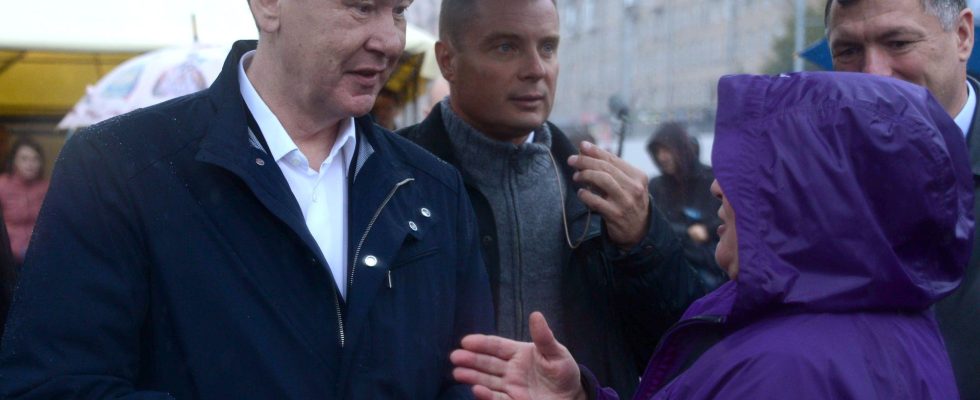Stone face and white hair, Sergei Sobyanin, 65, usually appears little in public. Reserved, he rarely speaks, except when the Kremlin invests him with a mission. And for good reason: Sergei Sobyanin is a faithful among the faithful of Vladimir Putin. It is a pure product of Putin’s technocratic elite.
Mayor of Moscow since 2010, he is a candidate for a third term, during the regional elections which are due to end this weekend. In 2018, he was elected with more than 70% of the votes in the first round, effectively preventing the opposition from reaching a second round. The same scenario should occur without incident on Sunday, since there is no debate or opponent to face him. “The 2023 municipal elections are organized in such a way that no matter how you vote, you vote for Putin,” summarized the opponent, Alexei Navalny, imprisoned for more than two years, on social networks. In 2013, the two men competed for mayor of Moscow. Navalny was not far from imposing a second round, in vain.
Before being elected mayor of Moscow in 2010, Sergei Sobyanin led the oil-rich Tyumen region in Siberia from 2001 to 2005, where he is from. Then from 2005 to 2008, he held positions in the presidential administration of Vladimir Putin. Unlike most members of the Russian president’s entourage, a former KGB agent, the mayor of Moscow has no direct link with the powerful special services. “He benefits from serious political autonomy,” political scientist Tatiana Stanovaïa told AFP, before adding that he shows no thirst for power beyond his current functions, because “those who work with Putin cannot have political ambitions.
Keep Moscow calm
Not very charismatic, self-effacing and usually in the shadow of the Kremlin, the mayor of Moscow, Sergei Sobyanin, appears in another light by occupying the outpost of the drone war which is reaching his city. A position that he had already had to take against the spread of the coronavirus in Russia.
Its main mission for 18 months has been to keep Moscow afloat and Muscovites calm in the midst of a storm, despite the sanctions which affect the economy, the military mobilization, the repression of the opposition and the Ukrainian drones which increasingly reach the capital. more regularly. When the Russian president ordered the mobilization of hundreds of thousands of Russians to fight in Ukraine, causing an exodus abroad, it was the mayor of Moscow who reassured Muscovites, a month later, by announcing to them that for them, it was already over. The mayor nevertheless boasted of having recruited 45,000 people.
“We are getting stronger”
It is with the same phlegm that he minimizes the danger of the drones which reach Moscow more and more often, causing only minor damage so far. He also carefully avoids speaking out about the offensive in Ukraine and its consequences, preferring to speak in general terms about the efforts made to minimize its impact on the lives of his constituents. “Despite a large number of difficulties, problems and crises that we are experiencing in the country, we are winning, we are overcoming these problems and we are becoming stronger,” he said during a forum municipal in August.
For political scientist Tatiana Stanovaïa, Sergei Sobyanin’s ability to keep control of this city of 13 million inhabitants, a center of influence where the elites and the main branches of Russian power are concentrated, is of crucial importance for Vladimir Putin. “To maintain control, you have to be very careful with Muscovites. It is better not to irritate them,” explains Tatiana Stanovaïa, interviewed by AFP.
As during the Covid-19 period, Sergei Sobyanin is forced to communicate more than usual in the face of Ukrainian drone attacks. He speaks regularly on the Telegram network and sometimes on Russian television, always with reassuring turns of phrase. After all, his role is to keep calm in the capital.
